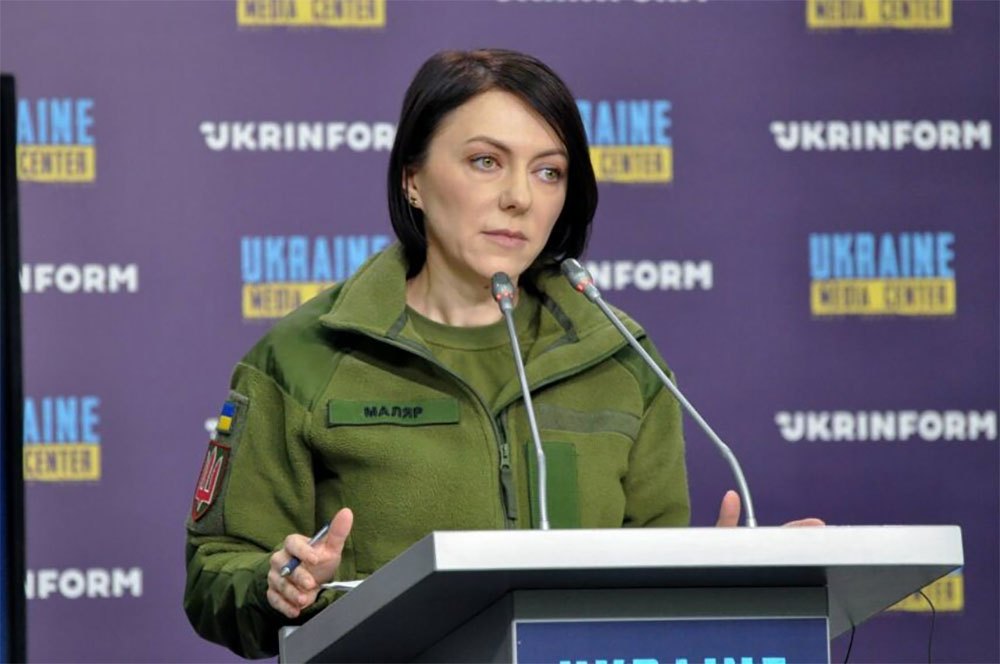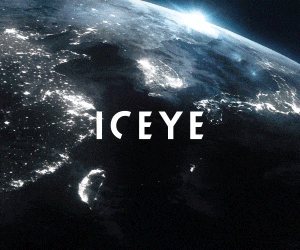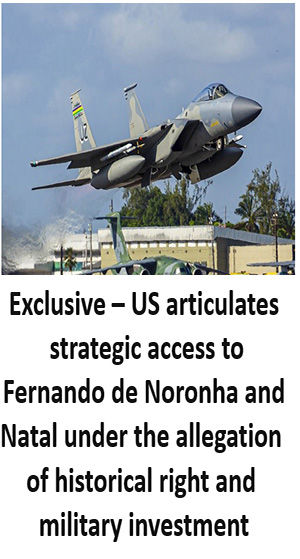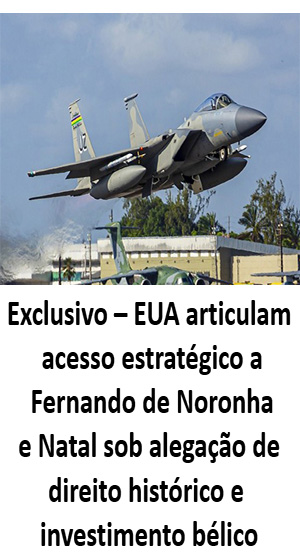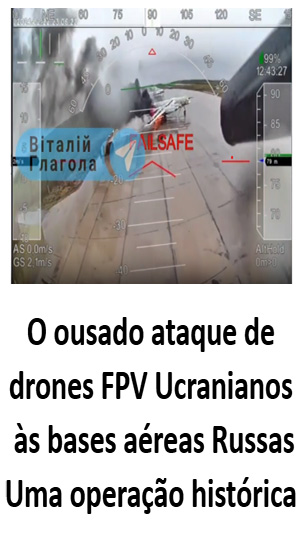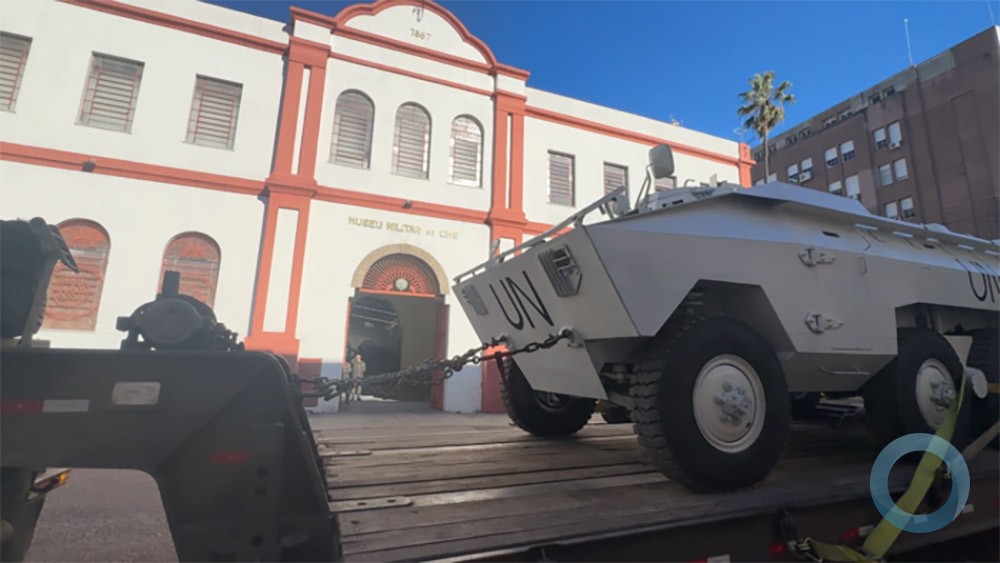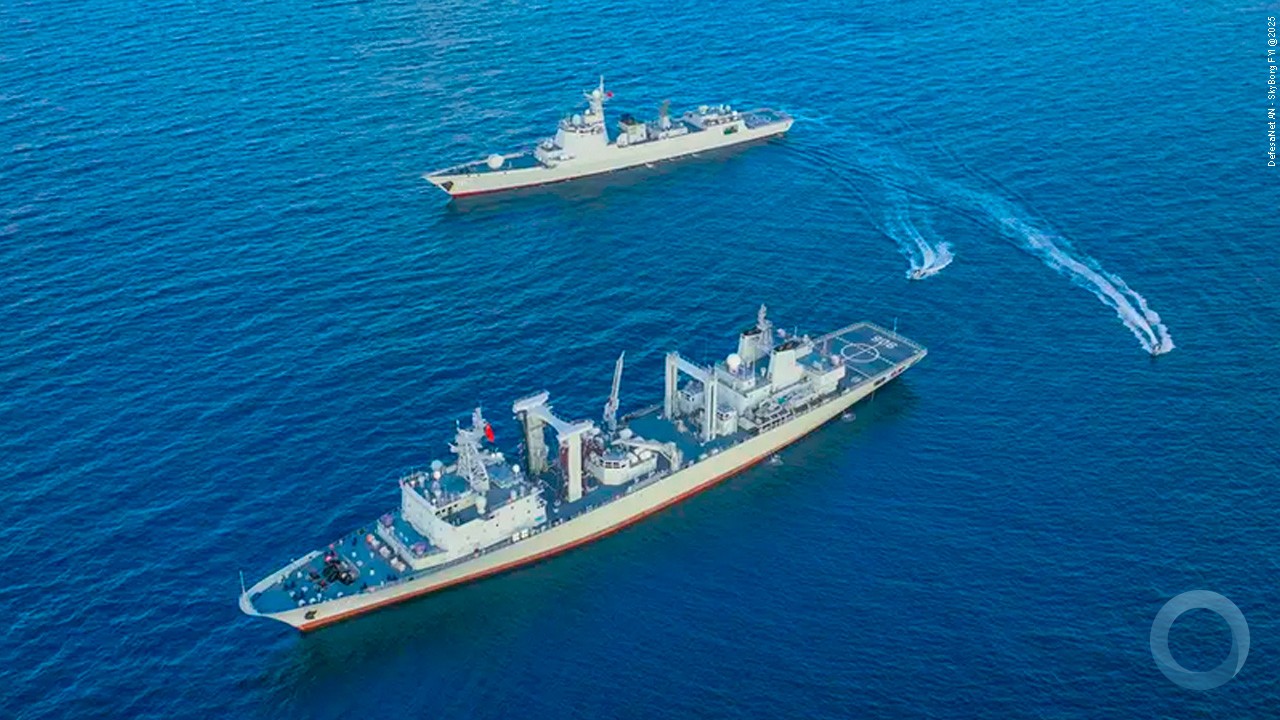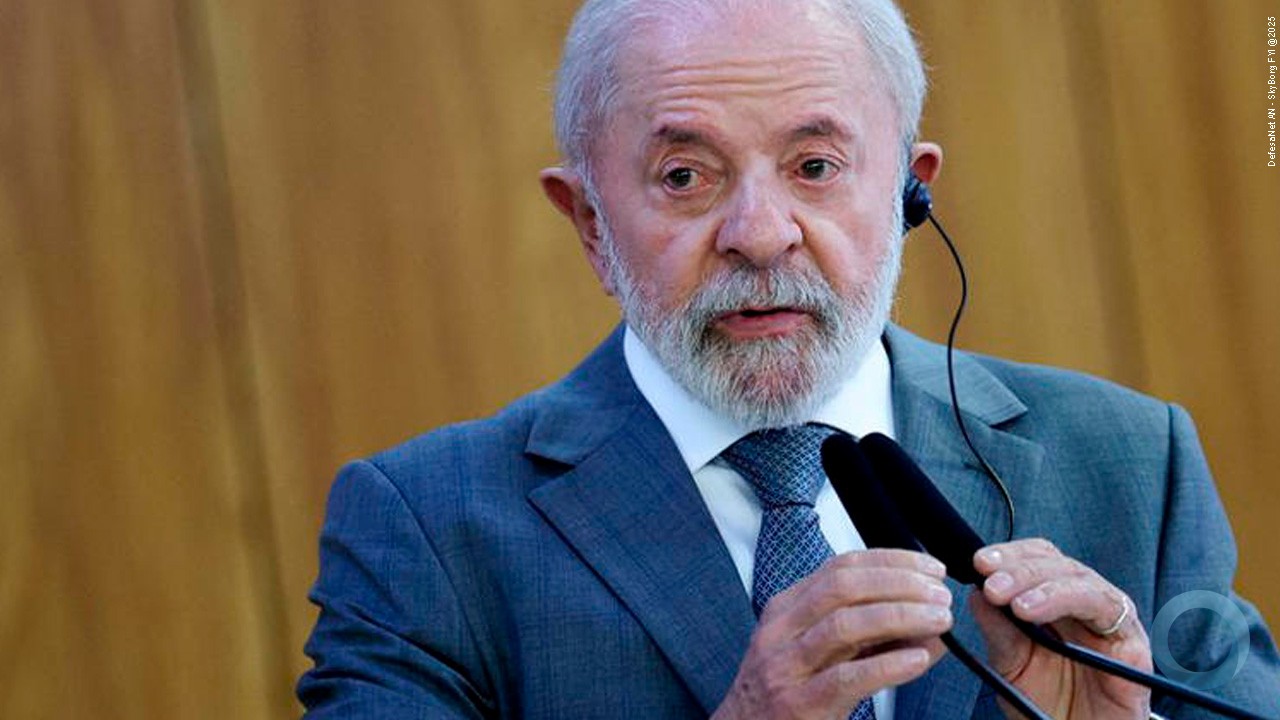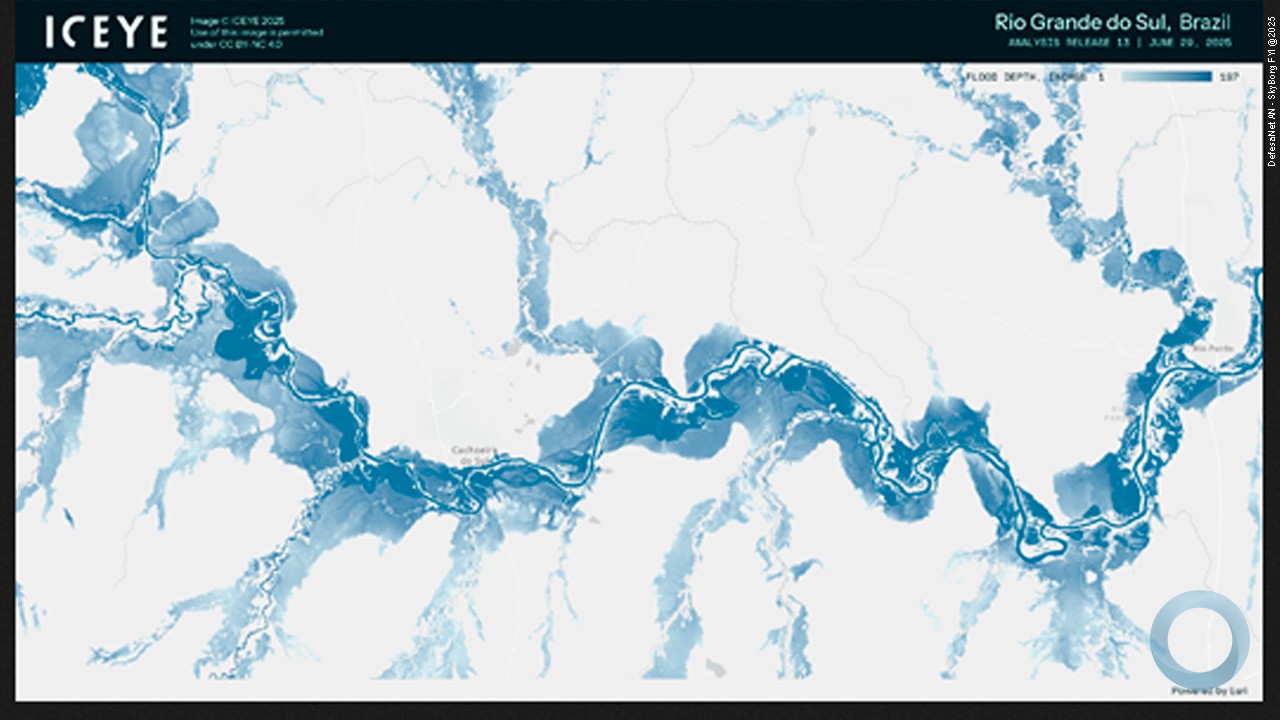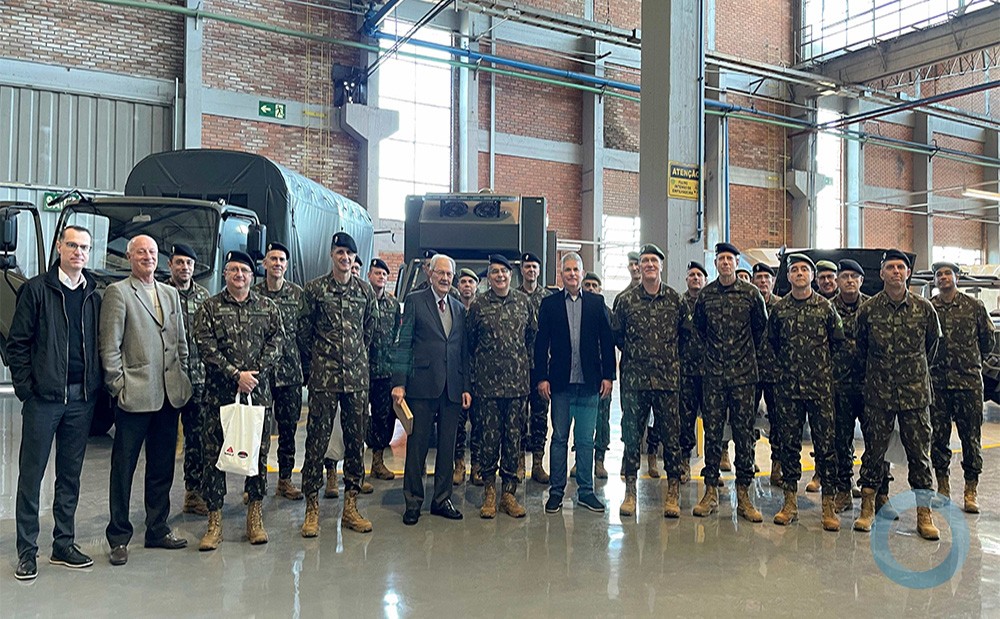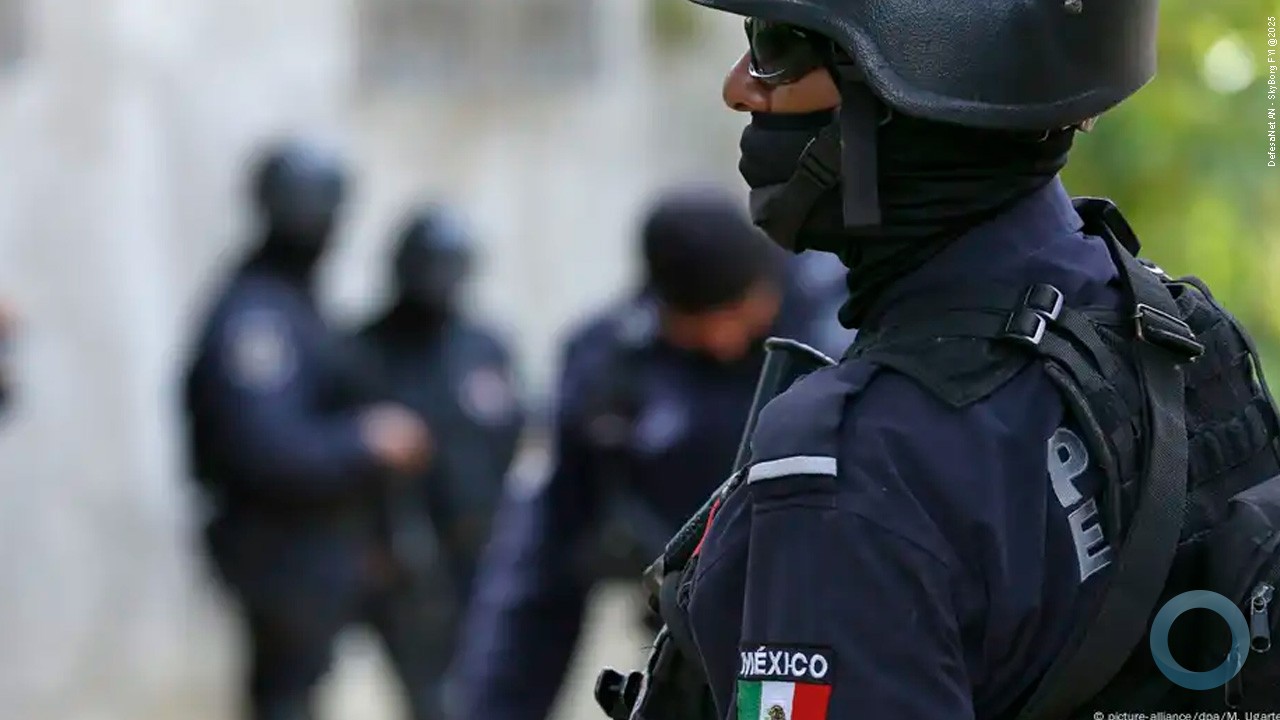Department Of Defense Press Briefing By Admiral Craig Faller, Commander, U.S. Southern Command
MARCH 11, 2020
Admiral Craig Faller (USN)
Commander, U.S. Southern Command
ADMIRAL CRAIG FALLER: Good afternoon. Do we have to turn this on or are we good?
It's good to see all of you. Some of you — it's been about 15 months, others not so long, but the SecDef asked — has asked the combatant commanders to come forward as we're in Washington DC to the press briefing room and tell our story, talk about what's happening in our region, you know, the impact it's having, both in the security of the region and the United States, so that's why I'm here today.
I had testified this morning before the House Armed Services Committee. That testimony covered a wide range of topics. I think one of the underlying themes is that — at least that I wanted to convey was the — the absolute urgency with which we have to maintain our competitive edge in this region, our shared neighborhood.
It's our assessment that the neighborhood's becoming increasingly contested strategic space in the global competition with China and Russia and we do maintain our positional advantage here. However, that advantage is eroding and it's challenging our ability to maintain a favorable balance of regional power that's directly called for here in this hemisphere in the National Defense Strategy.
In our assessment, a vicious circle of threats undermines the governance and security and creates opportunities for malign and external state actors to expand their influence. A vicious circle goes something like this — the systemic issues that affect young democracies, including weak institutions or corruption are grounds for national criminal organizations to prey on.
That's a $90 billion a year enterprise here in this hemisphere, principally fueled by cocaine and other illicit commodities. These transactional criminal organizations see that advantage and those same sorts of conditions that they thrive on, other nation state actors without democratic values thrive on, as well.
Recognizing these complex challenges in our neighborhood, we will see an increase in U.S. military presence in the hemisphere. This will include enhanced presence of ships, aircraft, and security forces to reassure our partners, improve U.S. and partner readiness and interoperability, and counter a range of threats, to include narcoterrorism.
It's important to note that partners play a critical role in this hemisphere. 50 percent of the drug interdictions last year — and that was up from 40 percent — are partner-enabled and that would not be possible without our security cooperation programs, which build partner capacity, so they can act against threats. It benefits them and benefits us.
This past Sunday, Brazilian President Bolsonaro visited Southern Command headquarters in affirmation of the strong partnership with Brazil, growing stronger. Our two countries signed an historic agreement on research, development, tests, and evaluation.
As you're aware, we've been undergoing combatant command review, directly in line with National Defense Strategy line of effort three, the reform line of effort, and we've had our session — first session with the Secretary of Defense and although no decision's been made, I felt that the process has been transparent, collaborative, rigorous, and it was exactly the thing we should be doing as we look to account for every dollar and every hour of our time and investments.
There's never going to be enough money and the challenges are enormous and global, so it's important to get after this. We've been challenged to look for efficiencies but the Secretary's been clear and he stated this when he visited Southern Command in late January, is that review doesn't necessarily mean reduction, review means we get it right with the right resources for the global fight that we're in.
Venezuela — the manmade Maduro crisis continues, the instability and suffering is without compare in this hemisphere. Close to five million Venezuelan citizens have fled the illegitimate Maduro regime. While China, Russia, Iran, and Cuba all operate inside Venezuela, a great power competition is playing out in a big way in our shared neighborhood in Venezuela.
Last thing I want to address is COVID-19. So in — in close partnership with the Joint Staff and OSD staff, we've immediately, when this broke, went into a battle rhythm of daily updates, briefings, information sharing. Our priority has been the safety of our men and women and their families.
We've increased the level of management controls on all travel and all leave and all — all events, looking at every one of them, do we need to do it? What's the risk involved? We've increased the education — I'd say education, education, education — and monitoring.
To date, we've had no reports of SOUTHCOM personnel, suspected or confirmed, of the virus. And around the hemisphere, the — the numbers of this morning were about 122 cases with one death, although we have to be very vigilant on those numbers, particularly when we look at the five — close to five million migrants out of Venezuela and the opportunities for this to be in larger populations.
So we're not — we know this is serious and we've — we've really got to keep our eye on this. We've increased our connections with all of our country teams and we've looked for the best options for testing, both with host nation and with U.S. sources here as we — as we would move to testing with our teams.
So we're planning at all levels, we're collaborating, and we're working hard to ensure doing everything possible to protect our people and the missions. And with that, I'll stop and open to questions.
Q: Hi, Admiral. Just a quick one on — on the coronavirus. Have you had — seen any impact yet on any of your meetings, exercises, or other military efforts with any of the allies in the region? And — but secondly, you mentioned an increase in military assets in your region — ships, et cetera, you said. How does that square with the zero based review that's going on? Should we see this as sort of the answer to the zero based review that indeed we've seen that SOUTHCOM needed additional resources or is this unconnected?
ADM. FALLER: On coronavirus, the — there has been some postponements of some events, a few conferences. Some of these have been by a host nation that were — were — were slated to travel to see us and we're — we're keeping a — so this has been small numbers to date. We're keeping a — a score list of what we need to reschedule.
We've postponed some events, some of these are outreach events, some just with local community leaders in Miami, the types of things where we just have to ask ourselves that if there's even the slightest chance of — of — of coming in contact and it would be just more prudent to redo it some other time.
So we haven't had any mission impacting cancellations of our joint train exercises, a JCID event or an exercise, or a real deep conference, but I certainly think as this goes, we'll be expecting to make decisions on a case by case bases.
On the increase of presence. So this really was born out of recognition of the threats in the region. And so I just sort of parked the combatant commander review over here and look at the threats and how do we best respond to those threats.
There's global competition and great power competition recognition that the transnational criminal organizations or others are eating away at citizen security right here in the United States and our partner nations.
So in our response and working options to respond, it coincided with the combatant command review. I think the onus is on all of us to work together to see where the assets best meet the needs of the nation.
First and foremost on, how does it enhance security here at home and then how does it enhance partner security; the two work together. And as — so as we go forward it will be part of the conversation on combatant command review for sure. And during the process we had a very robust discussion about the need to demonstrate adequate return on investment for the increases in forces that we would be seeing.
Q: Can you give us some details on what — what specifically we’re talking about…
ADM. FALLER: Sure. There — the operation area that we — we look at when we — I'll just pick the counter narcotics mission set. There are others but that one particularly, so area’s the size of the U.S. So if going back and looking at my congressional testimony last year, other combatant commanders; we've been working against that problem set with force packages.
And think of force package as a Maritime patrol aircraft, a ship, a helicopter. It could be a Coast Guard cutter, a Navy ship, or law enforcement that — area the size of the United States, we've been working between six and eight ships.
So we've been consistently staying at that number. We really need to cover that zone is much larger. And so that's part — was part of the rationale for the additional force packages that we'll be receiving.
So you'll see additional forces in — in the air, on land, sea, and some maneuver forces ashore, some security force assistance brigades to work with our partners. So it'll be an all domain approach.
I would not like to go into detailed numbers. I would keep it predictable for our allies and partners and unpredictable for our enemies.
Q: Just following on from that. What's the timeframe that we're talking if it started moving in …
ADM. FALLER: So we'll — it'll be — we'll be working it through the rest of this year, the exact timeframes I prefer not to — to provide the enemy. But we're going to be moving out smartly.
Q: And just to follow up. You mentioned Venezuela. What more or what can the U.S. military do to sort of address that issue because obviously you mentioned it's a problem. But what can the U.S. military actually do to change that.
ADM. FALLER: It's a tragedy and unfortunately Maduro is — is solidified with the thousands of Cubans that are there. They own the intelligence service and — and they're his praetorian guard. Hundreds of Russians, including Russian Spetsnaz and Russian technical advisors, fixing their air defense systems and advising on upgrading their SU-30s.
And then unfortunately to a lesser extent, Chinese, and they're helping Maduro control his population. Our focus has been on the diplomatic solution. We've been working closely with State Department and special representative, Elliot Abrams.
The pressure has isolated Maduro. The pressure continues both diplomatic and economic. Beyond that our focus has been on our partners. Very capable partners, Colombia and Brazil.
And as crisis tend to do; it's drawn us closer to our partners. We've increased intelligence sharing, we've increased personnel exchanges, we've increased our planning. We've increased our exercising.
They're the neighbors and we've learned a lot about this from them and the migrants have gone in their country, including defectors. And we fed that back into our own system here so we can better understand the complexities with — associated with that.
We spent a lot of time planning what we call day-after planning. What would it take to get Venezuela back on its feet after Chavistas wrecked the country for — for decades. And so we spent a lot of time there.
We know that the president and others have been clear about options. And as you'd expect for a combatant command, we have a range of options. But our focus has been supporting the diplomatic efforts.
Q: Hello sir. Thank you for doing that. You raised questions about Panama this morning, and you spoke about the absolute — absolute urgency to maintain U.S. competitiveness. So what is your military advice to do that along the Panama Canal.
ADM. FALLER: China is clearly trying to gain positional advantage to secure their economic interest right here in our neighborhood. And that plays out in Panama. Particularly it's a strategic ally of the United States and the Panama Canal is key terrain.
And the Chinese government, previous to the current Panamanian government, signed about 40 agreements with the last Panamanian government. And active port deals on both sides of the canal.
Fortunately the Panama Canal authority has maintained their independence. That's a good thing. So we have stepped up our partnership with the Panama security forces. It's been a welcome partnership.
We've stepped up our exercises with them. Our major exercise that we run every year is Panamex, the defense of the Panama Canal. Our state partner is the Missouri Guard and they are — they're in there every year with us. It's a multinational exercise looking at how we best defend the canal.
We've been there, my team and I numerous times over the last year looking for ways to strengthen that relationship. And we have a willing partner right now. They're wanting to partner with us. They're wanting U.S. equipment. They're wanting U.S. IT technology. They're wanting to secure that partnership.
So we'll move at the speed of Panama and we're ready to move as fast as they want to — to secure that relationship and make it stronger.
Q: And do you think you would have a political spot if you wanted to go back with bases in Panama?
ADM. FALLER: We don't have any bases in Latin America. We have the naval station in Guantanamo Bay. The rest of — we have locations, places, and I think that's appropriate for this hemisphere.
Any decision to look at access would be a political decision that would be our — our Department of Defense Leadership, Secretary of Defense working with State Department. And — and we would see what the security needs would be. I certainly think that there's tremendous value in being able to go to Panama and exercise. And we'd have to move at the speed of the Panamanians.
Q: Thanks, sir. Just curious if you've seen any uptick in Hezbollah activity or threats from the Iranians to U.S. forces after the death of Qasem Soleimani in January.
ADM. FALLER: We've been extremely watchful. Certainly Iran is the largest state sponsor of terrorism globally. Has their long arm of malfeasance everywhere. And there is a large Lebanese Hezbollah diaspora population in the region. We know their financial connections back to Lebanese Hezbollah and to Iran.
There's been attacks in the past. Argentina. And we've disrupted attacks in the past. And so we — we're keeping our eye on it. We're keeping our eye on it with our partners. We've seen some previous to the — what happened with Soleimani previous to that we've seen a slight up — uptick in some activity with Quds Force. We're keeping our very, very close eye on this across the hemisphere.
I'd also say that while it's — it's separate but distinct we also watch closely the Al-Qaeda presence and ISIS presence. Geography's important. The narrowest part of the Atlantic Ocean is Africa to Brazil and there are ties to — back into the Caribbean to ISIS and ties to Al-Qaeda.
And so one of the — the things I discussed at the congressional testimony is the need for intelligence assets, human intelligence and ISR, to keep — keep a watch on this, to ensure we protect our homeland and then to ensure that we can work with our partners to share information. That's been a real focus for Southern Command, for me, is increasing that information and intelligence sharing.
Q: Just to follow really quickly, is there any specific threat that you've seen or is this just financing through — through drug operations, is this sort of specific attack planning that they were conducting prior to the …
ADM. FALLER: We're keeping our eye on it because we know that they're capable of doing anything at any time so I don't want to — I wouldn't want to characterize anything we say and then — and then not have us be on the balls of our feet but we are concerned about some of the uptick of Iranian presence in Venezuela, for example.
Q: Hi, (inaudible). To the extent can, what specifics can you provide on the types of ships and aircraft that would be part of this increased presence? Are you seeing more littoral combat ships, maybe Coast Guard?
And then secondly, as part of the COCOM review, what can you say about potential cuts to the staff size at Gitmo? And then thirdly, just for fun, during the hearing today, it came up …
ADM. FALLER: We don't see the resemblance. The — so we'll start with — we'll start with assets. So — and I'd — I would like to start with shining a light on what the Coast Guard does day in and day out. So they've pledged four units — four force packages, cutter, helicopter, and the sharpshooter law enforcement detachments to go with that and they're providing eight.
So we would — we would see more Coast Guard surge because every Navy ship has to have a Coast Guard, law enforcement det on, because the detection monitoring mission is a Department of Defense mission, the law enforcement interdiction is either a hand off to another agency on land or Coast Guard interdiction at sea.
So certainly there'll be more Coast Guard surging forward in this. For the Navy — and the two workhorses right now for our Navy are destroyers and littoral combat ships. So we — we welcome either package. They're both helicopter capable and in some cases, the littoral combat ship, with its big flight deck, we can — we can do multiple platforms off set. So we'll see increases in that area.
Q: The potential cuts to Guantanamo staff?
ADM. FALLER: So — so the way to look at this, we made — we — we were — we've on — we've — it's policy decision. So the policy decision was made for an enduring mission at the detention facility and that's — the detention facility is the SOUTHCOM mission set.
The commissions, I — I like to point out, is Office of General Counsel, Secretary of Defense mission set. And we've got 40, one convicted and 39 detainees and there's a heavy Guard — put — Guard footprint. What drives the size of the Guard force is, in some respects, the spread out layout of — of the detention facility.
So the SecDef — and this is part of the combatant command review — said is there a more efficient or effective way to meet mission and not compromise force protection, security of information or the commissions process? So that's the guidance I've been given.
So we've gone through a number of course of actions and we think there's a way to consolidate footprint, not compromise force protection and not compromise in any way the commission process. And so we're on a conditions-based path to do that and as we meet conditions, we're — we're going look to best consolidate the footprint.
In — very much in concert with our interagency partners, intelligence agencies, stakeholders, there we’ve got to get that right. We've got to bring the 39 to justice as best we can. So we're — we're working — we're working hard at that.
Q: Sir, you spoke before about the best options for testing that you're looking at for SOUTHCOM. Can — can you elaborate on that? What do you — what do you mean in the sense of best options? And — and secondly, sir, when — when is the next PANAMAX? When are you looking forward to doing that?
ADM. FALLER: Can you just elaborate what you mean by testing, in what respect?
Q: You mentioned earlier you're looking at the — the best options for testing for coronavirus.
ADM. FALLER: Oh, so if you're in an embassy in Country X and — and you're — we're monitoring for situations and suspect you need a test, how do we best and most expeditiously do that test? It's going to be with a host nation healthcare provider.
So we're working with our — our country teams to map that out. So we figured out ahead of time instead of waiting until the conditions. So we — we're — mapped that out for all of our locations. If you're on — we've got wonderful healthcare providers at the Naval Station in Guantanamo Bay and the detention facilities. If you're suspected of symptoms there, how do you best get the test results read? And so what's the path?
If you're in my headquarters in Miami, it's probably the least of the challenges because there's tremendously good healthcare systems in the Miami area. We just have a small clinic with one doctor, two doctors. That's what I meant by that, how do we most expeditiously get the testing done for our team?
And then your second question was?
Q: PANAMEX …
ADM. FALLER: PANAMEX. So that's an annual exercise. We'll have — we'll have that this summer. I don't have the exact dates.
Q: … how are you? You've spoken before about information operations done by the Chinese, the Russians, the Iranians. Can you give us an update on whether you've seen — you've seen an uptick in those kinds of operations in your AOR and what — what can you tell us about these operations? Are you seeing them becoming more sophisticated?
ADM. FALLER: The Russians are the most active and run the most sophisticated — in fact, outside of Russian languages, their — their highest volume information office is in Spanish. And so Spanish RT and the — and the Spanish TASS are — are the largest volume Spanish read, non-Latin based information, and a lot of the information that's — that's put out there is — is fact. There's generally just enough slant in that to — to push a Russian narrative and I'll cite a couple of examples.
One, last year at my House Armed Services Committee, the — the headline came out of that hearing that I said something that was contrary to Vice President Pence — "the Navy Admiral disagrees with the Vice President" was the headline. It — it — I received a few phone calls on that, as you might expect. There was nothing in my transcript but you could trace it back to an RT article where they just twisted a couple of things and it got picked up second and third sources. We see that daily.
They reported on me being on the border, they've shown video footage of me on the border of Venezuela-Colombia, they've shown creative videos on the border with B-roll footage of Marine AAAVs and things. And so SOUTHCOM, in particular, we've become a frequent target of the Russian media and then that gets picked up by the Venezuelan media and so on and so forth.
Chinese I think is — is — it's different. They — they have — they all have their different interests. Russia, in many respects, I believe is to make the United States look bad, they're discredited at every turn. China is — is more attacking us when they see or perceive us to attack them. We're looking for opportunities to point out how the U.S. is running counter to their version of democracy in the hemisphere.
Case in point, the electrical grid in Venezuela. Clearly it's just completely abysmal and mismanaged from the years of neglect and when they had the massive rolling blackouts last summer, the state Chinese media blamed it on the U.S. sanctions. There's just no connective tissue at all there that you could even imagine but it was put out by Chinese state media.
And so those are just sort of two examples of magnified messages that run counter to, I think, democracy, to the principles of the region and certainly to the U.S. efforts to try to — to get at the truth.
Q: Have you seen an uptick recently, though, or have they stayed …
ADM. FALLER: No, the volume's really high. So example would be in January, the combined jump with the Colombians and the — and U.S. 82nd Airborne, a company-sized jump. That was right in the middle of Colombia but the Russian media really — they all surged on this and our Colonel Azubuike and our PA team did some graphs about the volume versus our activity and — and you could see a direct correlation of volume coming out of Russia for those kinds of activities.
Q: I have a question about your testimony and then I have a follow up, if I may. You had said that the security cooperation program that you had, received about a 20 percent cut and you said that that would require you to de-fund some programs and that had increased partners to do things like counternarcotics.
Is that the only thing? Can you elaborate on what other things that are counternarcotics focused in your AOR that have received cuts?
ADM. FALLER: So, I mean, clearly the — the — the Department has challenges with future budgets and — and great power competition. The Secretary's working hard to prioritize the money to that and we've all — we're all working hard to do our part in that.
As part of the combatant command review, we talked about the importance of our education funds, international military education training, our exercise funds, and our security cooperation funds. For us, those are — are three main muscle movers, if you will, to — to help partners get stronger and to work to U.S. interests — I mean, because a strong partner is good for the U.S.
Beyond that, we have our state partnership program and Joint Task Force Bravo and Soto Cano. Those are our — really our two maneuver forces. And so we talked about this at the COCOM review and the importance, I think, of increasing our education money smartly. There's just got to be a return on investment for us.
That security cooperation money is value added and it's not high dollar for SOUTHCOM and — and then the exercise money. In defense-wide review, decisions were made and — and again, resource prioritizations. There's an exercise cut of — across the all the combatant commands, across the joint account and there was a cut to the security cooperation.
So we're making our case as to why that matters to us. Ultimately, it's policy decision, prioritization decision. A 20 percent cut to our security cooperation, we — we will have to reprioritize and we're working through that for F.Y. '21.
Q: Can you — and to follow on, can you talk a little bit about what some of the things you decided to de-fund were? And also, you had mentioned that you wanted to increase from 50 percent of — of security partners doing counter narcotics stuff to 60 percent. How are you going to increase while you're decreasing the funds necessary to help the partners do that?
ADM. FALLER: In terms of prioritization of — of what we won't do in '21, we're still working through that. So it'd be a little early and I don't want to get ahead of my own team and — and partners. We'll — we'll want to carefully work through this and — and try to make sure we — we do as much as we can.
With respect to getting more partners in the game, some of that is just the U.S. being present and being there. And so our presence with our ships, Coast Guard ships and our team, our Fourth Fleet is really good at this. Our awesome team at Joint Interagency Task Force South in Key West, staying engaged so that money funds them — that counternarcotics account funds that.
And so we'll — we'll be able to work with our partners and up their game. There — there might be some areas where we'll — we'll take risk as we look in the future but the increased presence will certainly help us offset any of the — the near term security cooperation loss.
But long term, that security cooperation is — is a — is a really good investment, it's a high rate of return for a low up front investment as we move forward.
Q: And you think you're going to be able to — to do more with less?
ADM. FALLER: Well we will never be able to do more with less. We will look to be as efficient as we can and we'll prioritize everywhere we can and we'll focus on the things that are most important — education, intelligence sharing, exercise money — and — and we'll make the case for the resources.
I think when — outside of the detention facilities, the — the forces we — we have are the 685 soldiers and airmen that are at Soto Cano, Joint Task Force Bravo in Honduras. They — they support a variety of mission sets — rapid response exercises, disaster relief.
Right now, that team — it has helicopters that are stationed there and forces that are there are working with Colombia on the — on the border — about — between Colombia and Venezuela, doing medical exercises with Colombian partners.
That says, I think, a big statement about who we are, about our outstretched hand, like the deployment of the naval hospital ship Comfort, and — and that presence is important. So we made that case in the — in the combatant command review and I — and I feel confident we were heard.
But again, there's — there's challenges and prioritization's going to have to occur and not everything — we're not going to be able to afford to do everything. We — we're not going to outspend our way into winning great power competition.
Q: Hi, Admiral. A question about — you said in your remarks that a review did not equal a reduction in force but you talked about consolidation of the footprint in Guantanamo, your mentioning now the possibility of scaling back the humanitarian missions. Doesn’t that imply that, yes, looking forward there may be a reduction in your capability — and along those lines, when the administration shifted the resources from — or the funding from the counternarcotics funds to fund the projects along the border, did that impact your counternarcotics mission in the south — in — in the AOR (Area of Responsabilit?
ADM. FALLER: I think the way I would look at what we're doing in the detention facility — the Joint Task Force on Guantanamo detention facility team — is we're rightsizing that, we're making it fit for the tasks, the purpose and the numbers vice reducing it.
So with — there will be savings and — and a tremendous manpower savings and — and cost savings for consolidation on footprint but it's — it's absolutely the right thing to do. And so I wouldn't look at it as a reduction so much as a rebalance.
The — as we — as we look more broadly at our mission sets, there has been no impact to my counternarcotic money top line funding based on any discussions on border wall to date. So there's talk about a counternarcotics transfer fund — the money goes in, the money comes out — but the money that I have needed to do my mission has remained in that fund and — and we've been able to continue our mission.






